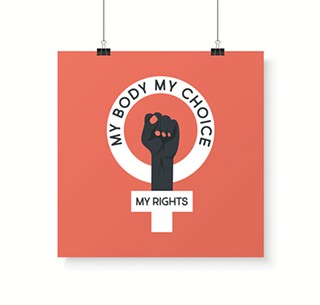Less than six months after the Supreme Court overturned Roe, states where abortion remains legal are seeing large increases in out-of-state patients forced to cross state lines for abortion. One of these states is Illinois, which remains a safe haven in a region where abortion is increasingly difficult to access.
This month, my colleagues and I at the Center on Reproductive Health, Law, and Policy at UCLA Law released a report estimating the number of people who will travel to Illinois for abortion care from restrictive states. We estimate that between 9,200 and 18,500 additional people will travel to Illinois every year for care. Said another way, about 1,020 additional people will make the journey to Illinois each month for abortion care.
Illinois had already been experiencing a significant increase in abortion patients coming from out of state even before the Supreme Court's decision in Dobbs v. Jackson Women's Health Organization eliminated the constitutional right to abortion. In 2020, nearly 10,000 women traveled to the state for abortion care, marking a 29% increase from 2019. According to the Illinois Department of Public Health, the most out-of-state abortion patients came primarily from states with restrictive abortion laws, including Missouri, Indiana, Wisconsin, Kentucky, Tennessee, Arkansas, Iowa, Michigan and Ohio. Of these, only Michigan is expected to maintain legal abortion access, thanks to the passage of a ballot initiative this November codifying the right in the state constitution.
But post-Dobbs, the number of women traveling to Illinois has already skyrocketed, with abortion providers reporting "record-shattering numbers" of patients coming into the state. Initial data from the Society of Family Planning's #WeCount Report found that post-Dobbs, Illinois has experienced the fourth largest increase in out-of-state patients of any state, with an additional 1,150 people coming in for care in July and an additional 1,520 people coming in August – a 28% bump compared to April 2022.
To improve access to abortion for people in banned states, we need to look beyond travel. Prior research has indicated that those who travel out-of-state for abortion care tend to be more resourced, white, college-educated people. Those with fewer resources face compounding burdens of travel costs, lost wages and child care expenses for existing children.
Abortion funds play a crucial role in providing financial and logistical support, but even before the fall of Roe, they couldn't meet the needs of everyone who sought assistance. Now that abortion is inaccessible in half of the country, longer travel distances result in higher costs that deplete funding more quickly than before.
In addition, the risk of criminalization is a worry for some pregnant people who travel out of state for abortion care. Both Texas and Oklahoma have enacted "vigilante" or "bounty hunter" laws, which allow private citizens to enforce abortion bans and empower anyone to sue a person who provides or "aids and abets" the procurement of an abortion for a resident of the state. So far no laws have been passed that allow legal action against a person receiving an abortion, however fear and misunderstanding have a chilling effect on people in those states who seek abortion care.
Providers in Illinois are exploring novel approaches to ensure that people without the resources to travel can access abortion care. One option is opening up mobile abortion clinics near the borders of abortion-hostile states to decrease travel distances. Planned Parenthood will soon open its first-ever mobile abortion clinic at the border of southern Illinois, near Missouri. In addition to opening new clinics, Illinois will need more abortion providers to meet the demand. Health care professionals in the state are lobbying to allow advanced practice providers, such as nurse practitioners, to provide abortion procedures.
It's a good start. As Illinois settles into its role as one of the Midwest's last options for legal abortion, we need more creative and nimble solutions to surmount the obstacles to safe and affordable abortion care.
Cathren Cohen is a staff attorney at the Center on Reproductive Health, Law, and Policy at UCLA Law.


















